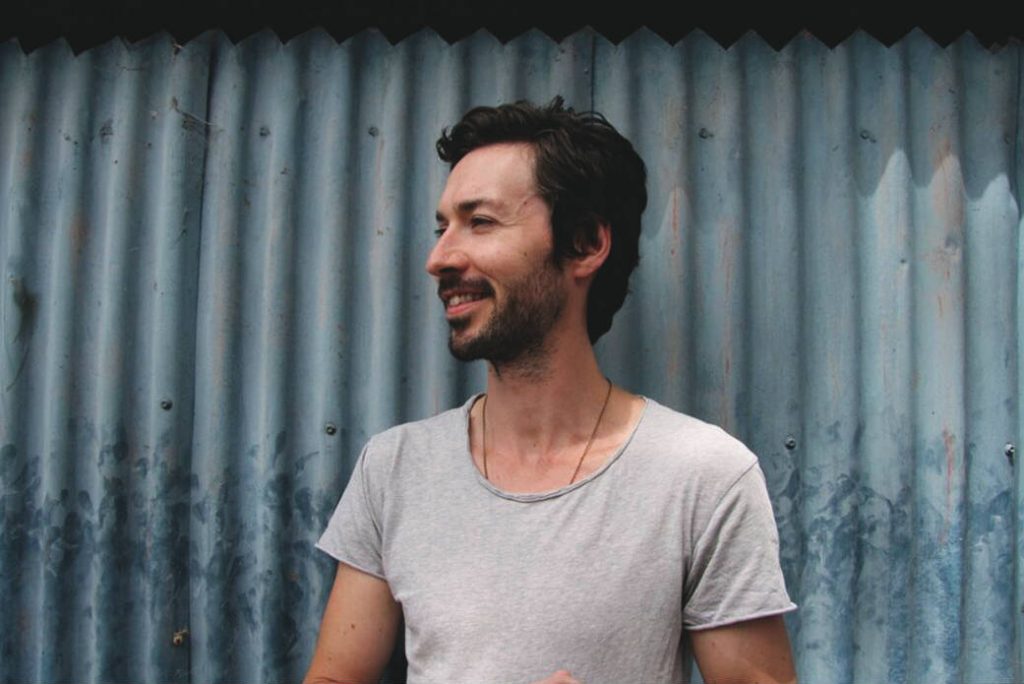Ade Vincent, composer: from The Tiger & Me to Melbourne Symphony

Ade Vincent, a Phd candidate at the Melbourne Conservatorium, is the inaugural Cybec Young Composer in Residence with the Melbourne Symphony Orchestra. His work Hood Yourself in Stars will premiere as part of the MSO’s Metropolis New Music Festival on 19 April.
By Susanna Ling
How are you feeling as the premiere of Hood Yourself in Stars approaches?
Both excited and apprehensive. It’s a privilege to go to work, make up music I think sounds good, write out the notes and then hand it over to hear it played by the MSO. That’s a massive over-simplification in some ways but it is essentially the process. The apprehension comes from not knowing if the sound I’m imagining is what will actually happen.
A large part of my background as a composer is in writing and performing with my band The Tiger & Me, where I have a lot of control over the end result. I’m still getting used to handing over a score and then standing back and watching what happens.
Can you tell us more about the work?
Hood Yourself in Stars is an orchestral work in three movements, exploring the cyclical nature of time and generations. The first movement represents age, wisdom, knowledge and reflection. The second is the stuttering chaos and colours of a life in motion. The third is new life and promise. A single primary motif carries all three movements: that which is passed down through generations is recognisably the same but also strikingly different.
The title and much of the inspiration for the work comes from a beautiful poem by Amy Lowell called Generations.
Can you tell us a little about your writing process?
Years ago I read an interview with Nick Cave in which he said:
I go into my office every day that I’m in Brighton and work. Whether I feel like it or not is irrelevant.
That’s stayed with me, and it’s exactly what I do (just not in Brighton). I keep normal office hours – I go into a studio and work every day. Some days it feels like no progress is made, but when breakthroughs come they seem to come out of nowhere and I’m sure they wouldn’t come at all without the slow days.
Being struck by inspiration in the middle of the night and scribbling things down is unfortunately uncommon. Once or twice I’ve written songs that have come out almost fully formed. It’s a joy when that happens. It’s like you’ve been handed something for nothing.
But usually it’s not so romantic – it’s hours and hours of gradually shaping and refining, which is ultimately more satisfying when you’re finished.
Do you need to “go looking” for inspiration then?
When I’m planning a piece I give my brain lots of interesting things to digest, and I write down anything that sparks a reaction – lines in books, stories, art, poems, other pieces of music, a conversation with someone – so that I have a catalogue of things that make my mind tick over.
Then I go away and do something else for a while – how long depends on the piece and the timeframe. When I come back usually something has taken shape in the back of my mind, I just have to reach in and find it. Sometimes it is easy to find and sometimes it’s more elusive.
What are the challenges of being a composer?
One of the main challenges is to not write the same piece over and over. The best artists don’t sit still creatively – they’re always moving somewhere new and interesting. If composers aren’t conscious of this there’s a tendency to be derivative – either of other people’s or your own work.
Another challenge for me for the MSO commissioned works was figuring out how to do what I do with an orchestra as the outlet, rather than a band or small ensemble. It’s a different vehicle, and it’s a lot like learning how to drive, trying to get the piece to go where I want it to.
As a child, did you imagine you’d be composing music?
I’ve been interested in writing music for as long as I can remember. As a kid I’d go to the piano and figure out the melodies to film scores I liked, and then try to make up my own. It’s something I’ve always done and loved. I tried an Arts/Science degree after school for some reason but it didn’t take – I switched back to music after one semester.
What’s it like being the first Cybec Young Composer in Residence with the MSO?
It’s been a fantastic experience so far. Composer Brenton Broadstock AM has been my mentor and I’ve learned a huge amount from him. I’ve also sat in on some orchestral rehearsals and had a few sessions with players where we’ve talked through issues specific to their instrument. Reading orchestration books and studying scores is one thing – but there’s so much more to learn from talking to expert players about possibilities and limitations.
What else are you working on at the moment?
I have a few other projects on while also doing the MSO residency. My band The Tiger & Me is releasing its third album later in the year, and we have a side-project EP coming out as well.
I run a company called Kaleidoscope Audio (with sound designer and composer Michael Trott) that does music and sound for games, and we’ve got a few projects on the go.
We’re working on a game called Spryke at the moment, which is a lot of fun – that will be out in 2019. I’m also doing a PhD in Composition at the Melbourne Conservatorium of Music and teaching composition – so I keep myself busy.